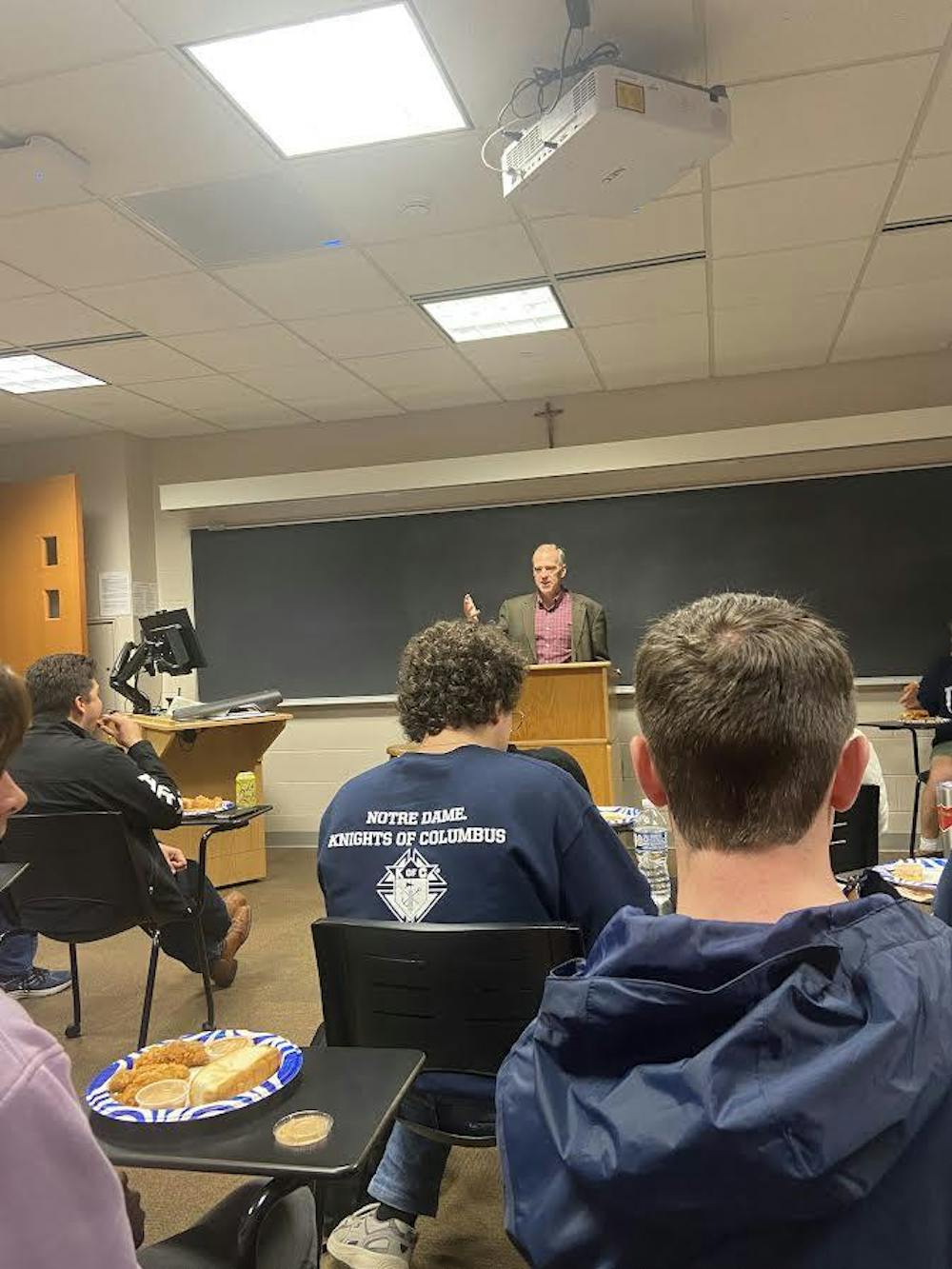Political science professor Daniel Philpott served as a guest speaker at the Young Americans for Freedom meeting Tuesday night. His topic of discussion was why Catholics should be involved in politics.
Philpott has a specialized focus on the intersection of religion and global politics, particularly emphasizing topics such as religious freedom, reconciliation, the political conduct of religious figures and Christian political theology. His talk reflected the themes central to his course, “Catholicism and Politics.”
“If our command is to love our neighbor, and political authority is ordered to the good, then that means that we should be involved in politics as an extension of love for our neighbor,” Philpott said.
Philpott explored the disjuncture regarding the involvement of Catholics in politics by discussing two political theories: radical Catholicism and Christian realism.
Radical Catholicism “is the view that there’s a sharp disjuncture between Catholicism and politics, which contains strong pressure for idolatry and violence and that Catholics and Christians in general should accordingly shun politics and choose a radical commitment to living the gospel in community,” Phillpott said.
On the other hand, Christian realism accepts the necessary role of policy, he added.
It “accepts the necessity and even the normalcy of politics but does not think that the gospel or the church has much to say about it,” Philpott said. “For the Christian realist when the two conflicts appear, politics must win out, politics is ruled by a logic of necessity such that it cannot realistically be subject to the demands of the gospel.”
Philpott read pieces from “Gaudium et spes,” one of the four constitutions that came about from the Second Vatican Council, highlighting public life and Catholics’ roles within it.
“The Church regards worthy of praise and consideration for the work of those who as a service to others, dedicate themselves to the public good of the state and undertake the burdens of this task,” Philpott said.
“According to modern Catholic social teaching, not only is it permissible for Catholics to participate in public life, but it is noble and praiseworthy,” he said. “The church seems to be rejecting the views that are skeptical of the compatibility of politics and Catholicism.”
Philpott discussed two main reasons why he believes politics should matter and be participated in as a Catholic. The first reason is that since God created the world, that includes politics.
“Christians participate in grace, participate in the work of the resurrection by working for this restoration of the world, and participate in God’s redemptive acts. And this includes the various spheres of the world: politics, economics and culture. To deny this would be to say that God’s redemption is limited, that God is not Lord of all but only Lord of something. But if that’s true, that God, at least the God that Catholics believe in, is not God at all,” Philpott said.
The second reason he pointed out is the idea of the common good and the commandment to love your neighbor.
“Politics is fundamentally ordered towards the good. I think that’s the Catholic view towards the common good. The two basic purposes of politics are coordination of the common good and enforcement of the common good,” Philpott said.
According to Philpott, coordination involves the organization and alignment of efforts among individuals or groups towards achieving the common good, while enforcement entails implementing measures to ensure compliance with principles and standards aimed at promoting the well-being of society as a whole and the safety of the community.
Philpott also discussed the virtues of justice and prudence and their importance to political life as well as the mediating principles of the common good, solidarity, subsidiarity and human dignity.
“These values are not going to be upheld unless we have good people in the political realm participating, helping to formulate the kinds of actions and policies for the common good, that safeguard and promote these different principles. So that’s why you should be involved in politics,” Philpott said.










